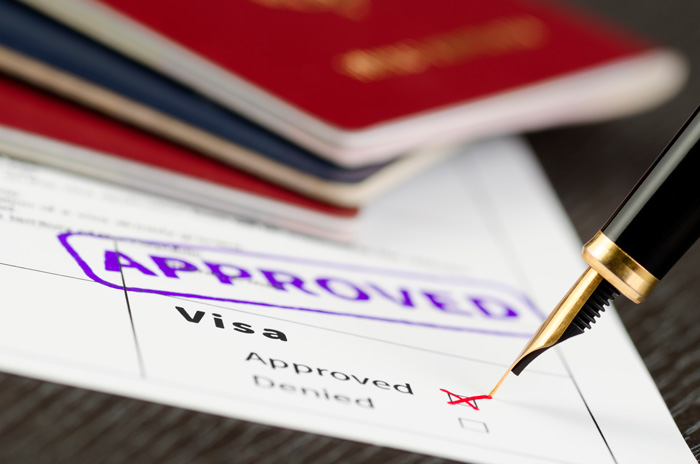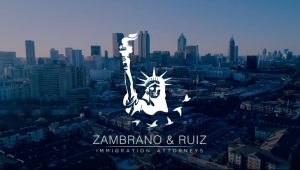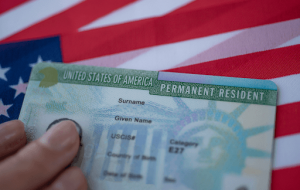Is there a difference between a Green Card and an O Visa? Are there different types of O Visas? How do I apply for an O Visa? All of these questions and more will be answered in this blog. If you have additional questions, we’re experienced immigration lawyers that will be happy to talk to you.
What is an O Visa?
First, an O Visa is a nonimmigrant visa granted by the USCIS for a person who possesses extraordinary skills in the areas of science, arts, education, business, and sports. That is, they have managed to be recognized in their professions nationally or worldwide for achievements in their fields.
This sounds like a broad category for visas, but the beneficiary of the visa, or the person who is hoping to come work in the U.S, must meet at least three of the eight O Visa requirements to be considered. There are three different types of O Visas depending on the field of expertise, work assistance, and family members.
- O-1 Visa (a): visa granted to all those people with an extraordinary ability in science, education, business or sports.
- O-1 Visa (b): visa granted to all those people with an extraordinary ability in the field of the arts, as well as in movies and on television.
- O-2 Visa: this visa is granted to those people who will accompany the person holding the O-1 Visa. These people are an integral or essential part of the work and must have a high critical capacity and experience to help the worker perform in the United States.
- O-3 Visa: visa granted to people who are spouses or children of the person who is requesting an O-1 Visa or an O-2 Visa.
What is “extraordinary ability”?
Success is measured differently all around the world. So what does it mean to have an extraordinary ability that qualifies someone for an O-1 Visa (a or b) instead of a Green Card or another type of visa? The USCIS has a list of requirements that the person must meet in order to be considered for an O Visa. These requirements serve as proof that they have achieved success in their professional career and, therefore, have enough documents to support and enforce the claim.

Unless the person possesses a major internationally recognized award such as a Nobel Prize, they must meet three of the following eight requirements:
- Recipient of one or several national or international awards in their field for excellent work.
- Membership in a nationally or internationally recognized organization focused on excellence and outstanding achievements in their field of expertise.
- Published material in a professional or major trade publications or other types of major media. These do not necessarily have to be written by the person, but they must highlight the significance of them and their work.
- Contributed original scientific, scholarly/academic, and/or business related work that is of major significance in their field of expertise
- Author of scholarly articles in their field published either in professional journals or other major media that require classification to be published in.
- Be paid a high salary or other form of compensation for services in their field with evidence to prove this salary.
- Participate on a judging panel, or individually as a single judge, of the work of others in their field of expertise or a specialized field allied with their field of expertise.
- Employed by an organization or establishment that has a distinguished reputation and hold a critical or essential role within this organization or establishment.
What is the application process?
There are four steps in the O Visa application process. Before moving to these steps, make sure that the person meets at least three of the aspects listed above, as those relate directly to the following steps. Throughout the following steps you will see the words “petitioner” and “beneficiary.” The petitioner is the person trying to bring someone of extraordinary ability to the U.S temporarily to continue their extraordinary work. The beneficiary is the person with extraordinary abilities who hopes to come temporarily work in the U.S as they continue their work.
Form submission
The petitioner must complete a Form I-129 at least 45 days before they will need the services of the beneficiary. I-129s cannot be submitted more than a year before the petitioner needs the beneficiary to start working.
Written consultation
Additionally, the petitioner must have the written opinion from a peer group, such as a labor organization, or from a person with expertise in the beneficiary’s field of expertise. This written consultation may contain marks of authenticity, such as a watermark, and if the consultation is marked in such a way, the petitioner should submit the document with this mark. A copy of this document that does not have an appropriate mark may raise doubts about authenticity and delay the O-1 Visa application.

There are two exceptions to this consultation requirement: if a qualified peer group does not exist or if the beneficiary seeks readmission to perform similar services done within the last two years which already had a consultation, then a written consultation is not necessary. For the first exception, the previously mentioned evidence will suffice. For the second exception, the petitioner should submit a waiver request along with a copy of the previous consultation.
Evidence of a Contract
A copy of a written contract between the petitioner and the beneficiary or a summary of an oral agreement between the petitioner and beneficiary concerning employment must also be submitted. The summary of the oral agreement can be emails between the parties, a written summary of the terms of the oral agreement, or other evidence that proves an oral agreement occurred. Regardless of the type of evidence, the agreement must contain what the petitioner/employer offered and what the beneficiary/employee accepted. Although signatures of both parties are not required, the documentation must contain the offer and acceptance.
Itineraries
Lastly, the petitioner should also submit an explanation of the events and activities that the beneficiary will be participating in with evidence that these events and activities are occurring during the time while the beneficiary is in the U.S. These events and activities should be directly related to the beneficiary’s field of expertise.
Hire an Immigration Lawyer
An immigration lawyer can help O-Visa applications go more smoothly. However, they cannot expedite the process. O-Visas take time whether you have the help of an immigration lawyer or not. However, an immigration lawyer can help you review the eligibility of the beneficiary and help you with the proper documentation, which will save time.
At Zambrano and Ruiz, we are expert immigration lawyers in Atlanta who are happy to help advise you as you work through visa applications. Call us now and we can help you with our free consultation.





